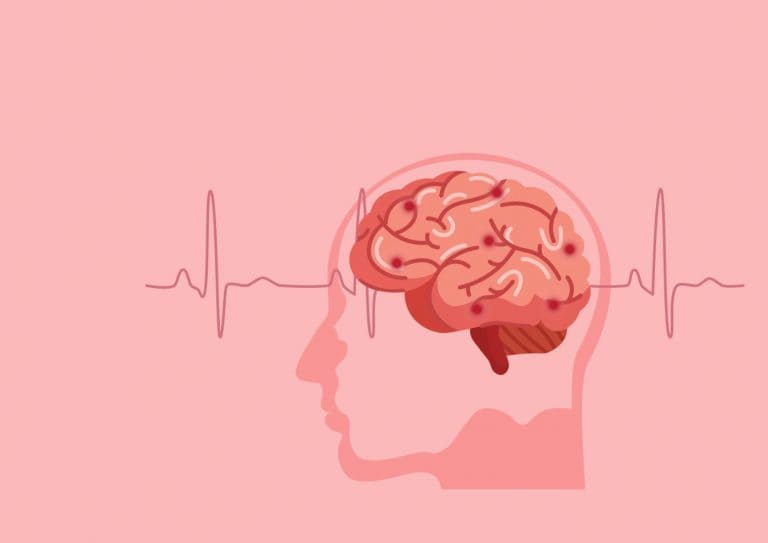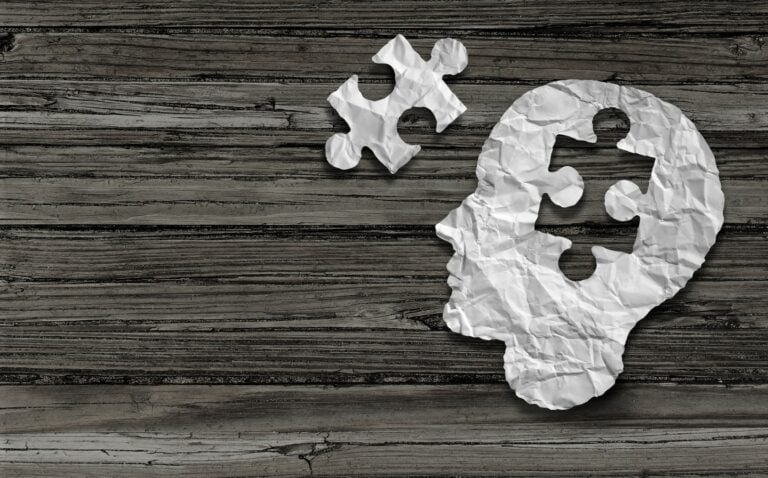The complexity of the brain means that the effects of a brain injury – and the symptoms that follow – can be wide ranging. Every person’s injury is unique, so they will experience any number of symptoms, which can range from mild to severe.
The impact of a brain injury can cause physical disabilities, as well as hidden disabilities such as cognitive impairments (that is, affecting mental processes such as memory and reasoning). Whether the effects are physical or mental difficulties, or whether the symptoms present in the short term or long term, brain injury can have a seriously upsetting and distressing impact on the life of the injured person and those closest to them.
The three main can be categorised as follows:
- Cognitive brain injury
- Physical brain injury
- Behavioural and emotional brain injury
1. Cognitive brain injury
A cognitive brain injury is one that impairs a person’s mental abilities, and affects the way a person thinks, learns and remembers. Different parts of the brain control different mental abilities and skills.
This type of include problems with:
- memory
- concentration and attention span
- solving problems
- speed of processing information
- ability to correctly perceive surroundings
- communication problems
- impaired judgement of themselves and others
Memory
Problems with memory are very common after brain injury.
Due to the complexity of the brain, in order for it to be able to process, store and retrieve information, it requires different areas of the brain to be used.
So if the brain is damaged, it may have an impact on the person’s memory.
The injury can affect the ability of the injured person to recognise faces or remember people’s names, and can also have an impact on their memory to be able to recall what has been said to them or learning new skills.
During the period of memory loss, the injured person will be unable to remember what happened either before or after their traumatic brain injury. The severity of the injury will determine the extent of the memory loss, which can be days, or even years. In extreme cases, permanent memory loss can occur.
Poor concentration and attention span
It is not unusual for the injured person to suffer attention difficulties and the inability to multi-task following a brain injury.
Completing tasks can be difficult for the individual and the task may be abandoned before reaching the end, either due to its difficulty or the person losing interest.
Poor problem-solving ability
Damage to the brain can cause the person to have difficulty to work out what to do if they encounter an unexpected problem and as a result become angry and frustrated.
Impaired reasoning may affect the person’s ability to be able to think logically, understand rules, or be able to participate and follow discussions.
Information processing
Following a brain injury, the damage to the brain may cause the person to have reduced ability to process information.
It may take the individual longer to think things through if they have been given instructions, and have difficulty in responding. This, in turn, can create ‘information overload’ for the person and consequently can make them become frustrated and agitated.
Following a brain injury, ‘perceptual difficulties’ can occur. This means that the brain is not interpreting the information from the person’s senses correctly. This can include difficulties with hand-eye coordination, judging distances and spatial relationships.
Language and communication problems
Where a brain injury has occurred, it is not uncommon for the injured person to find it difficult to communicate with those around them.
The person may be unable to understand what is being said to them, or find the words to express themselves, verbally or in writing. The person may be unable to move on to another topic in the same conversation, or may repeat the same topic over again.
Impaired judgement and insight
A person with a brain injury will have difficulty in accepting or appreciating the extent of their cognitive problems.
Understanding and interpreting their own behaviour and feelings, or that of people around them, can also be a problem.
2. Physical brain injury
As well as controlling a person’s cognitive abilities, the brain also helps control the physical processes which take place in the body in order for it to be able to operate correctly.
Following a brain injury, the damage caused means that the brain may no longer have the ability to control these regular functions, depending on the severity of the injury. Examples of this include the following:
Mobility
It is common for mobility to be affected following a brain injury, particularly if the injury is serious.
The person’s movement can become slow and balance can be affected. Depending on the severity, a person may require a wheelchair or other aids.
Fatigue
Excessive tiredness is not uncommon when a person suffers a brain injury. Even doing normal day to day tasks can require much more effort.
Having rest breaks are very important to the injured person during the recovery process of a brain injury.
Speech impairment
A brain injury can distort an individual’s speech, which is not uncommon.
It may be difficult to understand the person’s speech following a brain injury, or the person may repeat what they have said already. In extreme cases – such as people with traumatic brain injury – it can mean some people lose the ability to speak altogether.
Sensory impairment can be a common feature following a brain injury. The feeling to the injured person of touching their skin can be reduced, lost or exaggerated.
Vision and other senses can also be affected, such as taste or smell being impaired either in the short term or permanently.
Weakness, paralysis and spasticity
Following a brain injury, it is not unusual for the person’s limbs to cause immobility problems and depending on the part of the brain which has been damaged, it is often the case that one side of the body is affected more than the other.
The person’s limbs can become weak and their range of movement can be limited. Spasticity may cause discomfort and pain.
Uncontrolled movement may also occur, such as shakiness. In addition to this, it is not uncommon for muscle weakness to occur as a result, which can affect the person’s continence.
Epilepsy
A brain injury can cause a person to become prone to ‘fits’ or epileptic seizures.
It is not known how to predict who will develop epilepsy after a brain injury and who will not, however, the likelihood that a person will develop episodes of epilepsy is influenced by the severity and type of injury.
Although medication can be given to assist with reducing the chance of it recurring, there may be side effects from the mediation and have an impact on the person’s day to day activities.
Hormonal imbalances
A brain injury can cause hormonal imbalance to the injured person.
The damage caused can create an instable internal environment in the body. There can be short term and sometimes long term problems caused as a result of this.
3. Behavioural and emotional brain injury
Following a brain injury, it is not uncommon for the person’s personality to change, consequently causing their behaviour and emotional reactions to change, too.
Depending on the part of the brain that has been damaged will determine the way in which an injured person’s personality has changed.
It is frequently the case that the injured person will not realise that they are acting differently compared to the way their personality was prior to the injury.
There are many ways in which someone’s behaviour and emotions may be affected:
Mood Swings
It is not uncommon for a brain injury to change the way that the injured person feels or expresses their emotions.
Damage to the brain can cause mood swings due to the inability to regulate emotions, and the person may have an unpredictable tendency to laugh or cry, or change very suddenly from one emotion to another.
It can also cause a reduced tolerance for stress, anger and frustration.
Depression
A common feature following brain injury is for the injured person to experience depression.
This usually happens particularly where the person has an understanding as to the extent of their limitations and difficulties, and any permanent damage that may have been caused that they need to cope with.
Depression can also cause a lack of motivation, interest or spontaneity.
Anxiety, anger and frustration
It is not unusual for the person to feel symptoms of anxiety following a brain injury, due to the loss of confidence they experience with the inability to be able to carry out tasks they could do without difficulty prior to the accident.
Frustration and anger can also build up, and this can be difficult for the person to control.
Lack of awareness and disinhibition
Damage to the brain can affect a person’s self awareness.
This may result in a loss of control over social behaviour, and the person may be unable to realise that they are behaving in an inappropriate manner, or that they are making offensive comments to people around them which may be spontaneous and uncontrollable.
The damage may also affect the person’s insight into the consequences of their actions.
Obsessive behaviour and inflexibility
Damage to the brain can cause the person to lose their ability to reason and make sense of things.
This may lead to the person being unable to do things in a different way to what they are used to, because they have lost the ability to consider alternative methods.
Symptoms of this nature can also include stubbornness, and obsessive behaviours.
Sexual problems
When a person suffers damage to the brain, their sex drive can either increase or decrease due to the changes to the section of their brain that controls hormone levels.















